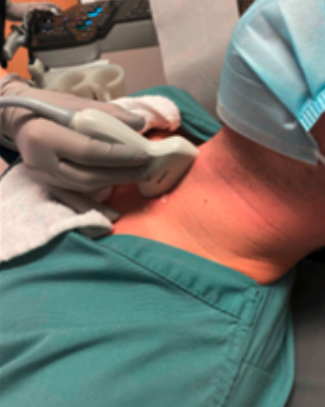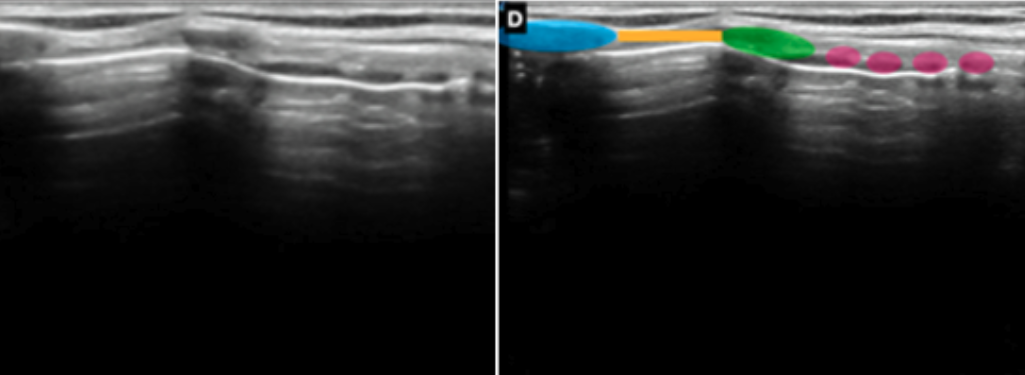Identification of the cricothyroid membrane to facilitate surgical cricothyrotomy
Cricothyrotomy is an advanced skill that is rarely performed by physicians. Use of ultrasound should never delay definitive airway establishment. Expert surgical consultation should be sought early.
Technique:
Step 1: Place the probe in the longitudinal plane at the suprasternal notch (Figure 9) and identify the tracheal ring of pearls (Figure 10, purple circles)

Figure 9: Airway POCUS using the linear probe in a supine patient
Step 2: Move the probe cephalad until you identify:
– The cricoid: a larger pearl with posterior acoustic shadowing (Figure 10, green oval)
– Thyroid cartilage: cephalad to the cricoid, a hyperechoic structure with hypoechoic shadow (Figure 10, Blue oval)
Practice Pearl:
Like many structures in children, the cartilage is less calcified, appearing darker (hypoechoic) on ultrasound with minimal shadowing compared to adults. Nevertheless, the positional relationships—thyroid cartilage, cricothyroid membrane, cricoid cartilage—remain the same, so you can still use the same “string of pearls” approach and carefully identify the membrane for procedural marking. The “pearls” may be a smaller and dimmer in younger pediatric scans compared to older patients.
Step 3: Identify the cricothyroid membrane – in between the cricoid and thyroid cartilage (Figure 10, yellow line)
Step 4: Mark the skin and use this as a static landmark for the surgical airway

Figure 10: Longitudinal plane over the cricothyroid membrane (yellow line), thyroid cartilage (blue circle), cricoid cartilage (green circle) and tracheal rings string of pearls (purple circles).
